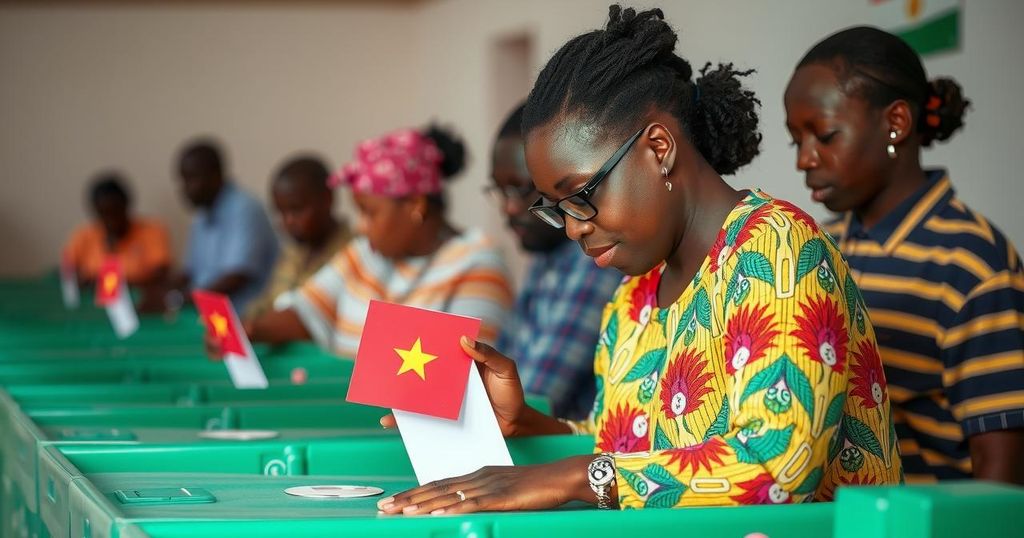Ghana Elections: Democracy Tested Amid Economic Turmoil

Ghana’s presidential and legislative elections commenced amid profound economic challenges, with 18.7 million voters registered. Both main candidates, Mahamudu Bawumia and John Dramani Mahama, struggle to provide distinct economic solutions, despite a history of peaceful elections. The electorate’s mood reflects both hope and concern as inflation surges and essential commodities remain scarce, setting the stage for a critical moment in Ghana’s democratic journey.
On Saturday, polls opened for presidential and legislative elections in Ghana, marking a critical moment for democracy in a region affected by violent extremism and military coups. Approximately 18.7 million registered voters are set to participate in these elections amidst the nation grappling with its most severe economic crisis in decades. Despite the historical standing of Ghana as a bastion of democratic governance, both primary candidates in this election have been perceived as offering limited solutions for the nation’s challenges.
Ghana, previously recognized as a symbol of democratic resilience, is currently suffering from rampant inflation and a significant lack of employment opportunities. A study conducted by Afrobarometer revealed that an overwhelming 82% of Ghanaians believe the country is deteriorating.
Despite the presence of twelve presidential candidates, the electoral contest has crystallized into a competition between Vice President Mahamudu Bawumia of the ruling New Patriotic Party (NPP) and former President John Dramani Mahama of the opposition National Democratic Congress (NDC). Their campaigns highlight a lack of distinct economic strategies, leading observers to question the efficacy of either party in addressing the current crisis.
An additional 276 members of parliament will be elected, with the NPP and NDC each holding 137 seats in the existing legislature. Both candidates presented their final pitches at rallies, with Bawumia advocating for continuity in government programs and Mahama calling for a comprehensive national “reset” across various sectors.
Election festivities are palpable in Accra, accompanied by a pervasive concern regarding the underlying economic turmoil. The country faced a default on foreign debt last year, further exacerbated by surging prices of essential commodities and an inflation rate peaking at 54%. The pervasive issue of illegal gold mining, impacting both the economy and environmental integrity, remains a contentious topic among voters as the nation seeks viable paths forward.
Ghana is historically recognized as a leader in West African democracy, having conducted peaceful elections for decades. However, recent years have seen a decline in economic stability, characterized by high inflation rates and increasing unemployment. These challenges have culminated in widespread dissatisfaction among citizens, leading to significant apprehension as the nation heads to the polls. The election is particularly crucial as the outcomes are likely to influence Ghana’s democratic future and its ability to revive economic growth.
The elections in Ghana represent more than a mere choice of leadership; they are an indicator of the nation’s democratic resilience amidst economic adversity. With the public’s overwhelming concern for the country’s economic direction, the election results will be closely scrutinized, not only for their immediate impact but also for their longer-term implications on governance and economic recovery in Ghana.
Original Source: www.voanews.com







